The authoritarian menace has arrived
And so has the backlash — but the resistance needs to be smarter
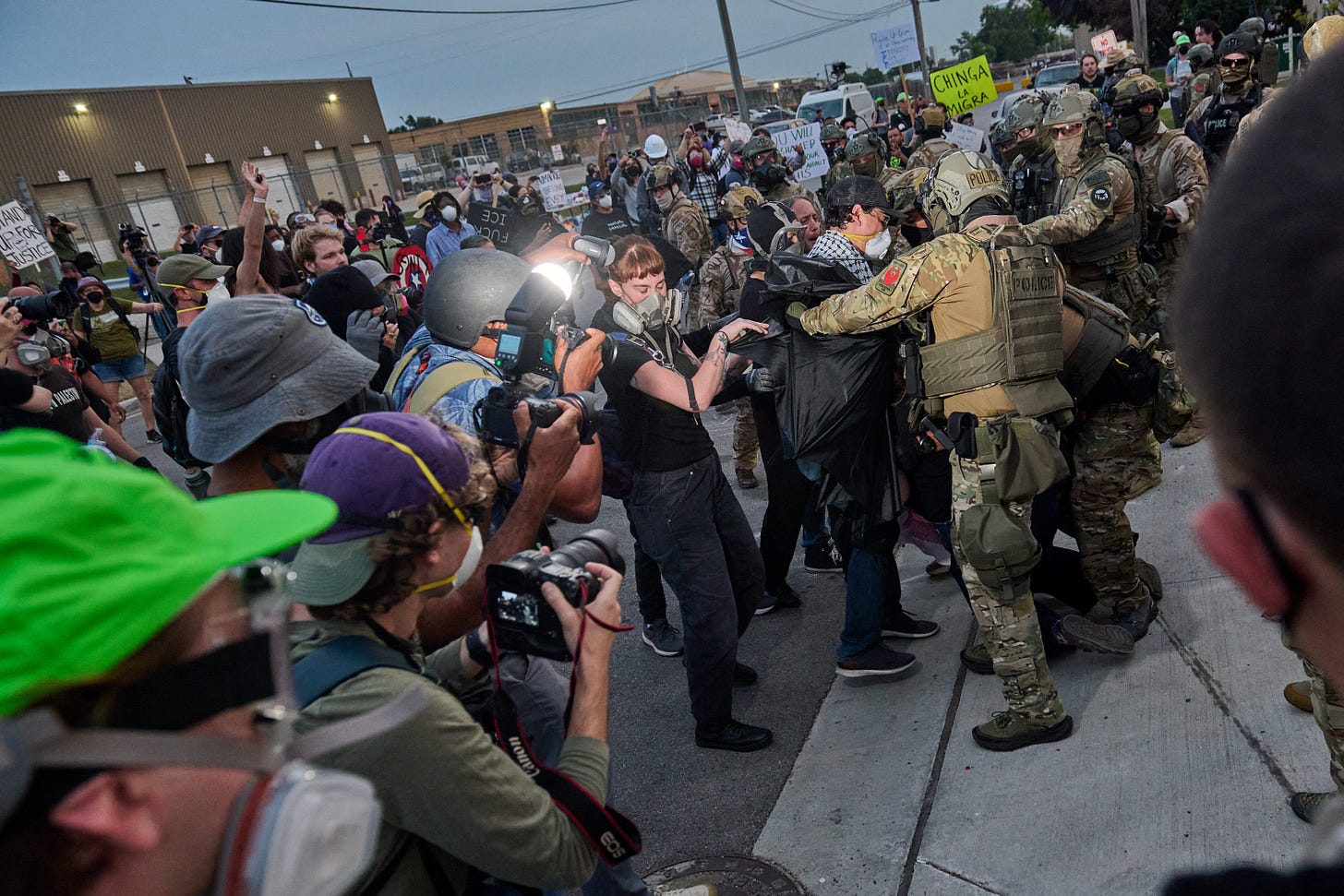
Opposition party politicians exaggerate the problems with the status quo. When Donald Trump was running for president in 2024, he absolutely did this. And because he’s more dishonest than the average politician, he did it to an unusually large degree. But the basic pattern of his exaggerated claims that the country was in a state of crisis was banal — that’s how you run against an incumbent president (or against his vice president when she steps in as a replacement candidate).
Incumbents, though, normally do the reverse.
And a striking aspect of Trump’s conduct as summer turns to fall is his resolute unwillingness to take victory laps over a certain class of problems. Twelve months ago, he wasn’t talking about the fact that irregular border crossings had plummeted and crime was falling, because he was trying to win an election. Today, both of those numbers have improved even more. But instead of taking victory laps, Trump is fanning the flames of crisis and claiming that, for some reason, the country urgently needs totally unprecedented troop deployments in American cities.
Five years ago, one of Glenn Greenwald’s contrarian takes was that if Trump was the authoritarian menace that some critics claimed he was, then surely he would have taken advantage of the crisis atmosphere around Covid to assert sweeping new powers. Instead, he largely chose the path of happy talk and wishful thinking, and left it to his opponents to call for more forceful measures.
In El Salvador, for example, President Nayib Bukele ordered harsh lockdown measures. Courts ruled these illegal, but he defied and eventually removed from office the judges who tried to check his powers.
I bring this up because Elon Musk and other prominent conservatives are now explicitly praising Bukele’s actions as a model for Trump. Which is not to say that conservatives are now rethinking their stance on Covid non-pharmaceutical interventions (though, as Phil Magness points out, many of the leading lights of the post-liberal right initially favored very harsh lockdown measures), but that they are embracing the larger logic of Greenwald’s argument and inverting it.
Because they, in fact, are authoritarians, they think it’s a good idea to seize on crisis to assert executive power and destroy civil liberties. They are so passionate about this that they abstracted away from both the specific context in which Bukele neutered the judiciary (a dispute about Covid), and also the basic reality that while Bukele’s crime record is impressive, murder in America had been falling for years before Trump took office.
There’s no emergency requiring the dispatch of National Guard personnel into cities where they’re not wanted, and there’s no ongoing “invasion” of the country by asylum seekers. What we have is an administration that refuses to tout good news, because it loves the idea of a country immersed in crisis as a pretext to seize even more power. When the president’s top policy aide is tweeting that court rulings upholding basic federalism and America’s long tradition of keeping the military out of domestic law enforcement are “terrorism,” the authoritarian menace has truly arrived.
The question is what to do about it.
Bringing the war on terror home
An even wilder example of the administration’s crisis-mongering is the airstrikes on Venezuelan boats. Drug interdiction efforts are not a new part of American public policy. And it’s of course true that illegal drugs are a non-trivial problem in the United States. That being said, drug overdoses peaked about two years ago and have been falling ever since. Of course Trump wasn’t going to tout this good news last fall when he was running for president. But now that he is president, he still doesn’t want you to know how much better things are getting because only a crisis atmosphere could justify this kind of lawless conduct.
So given that the drug situation started improving long before Trump took office and it continued to improve during his early months in office when he wasn’t doing anything noteworthy, why are we suddenly executing alleged drug dealers without trial on the basis of secret evidence?
Well, every public statement the administration has made about these killings refers to “narco-terrorism” and “narco-terrorists” instead of “drug dealers,” “drug smugglers,” or other normal words.
Civil libertarians warned extensively about this in the heyday of the “war on terrorism” — that the creation of weird legal states of exception, where neither the laws of war nor the normal code of criminal justice applied, would inevitably be expanded to undermine the entire rule of law.
These were good warnings, but I also thought that they were a bit lawyerly and politically naive. As 9/11 faded further and further from memory, the amount of irregular counterterrorism activity undertaken by the American government declined. In a practical sense, the state of exception was bounded by decreasing public alarm over Islamist terrorism and by the views of members of Congress. And I think this is a point that the too clever by half “actually Bush was worse than Trump” line of argument missed. Presidential policymaking doesn’t operate in a vacuum. It’s true that Bush did more to infringe on civil liberties than Trump did in his first term, but if Trump had been president on 9/11, he probably would have put the country’s entire Muslim population in internment camps.
And this is what I find so disturbing about the new war on narco-terrorism: it’s not in response to anything. It’s not a bad or counterproductive overreaction to some concrete problem. I don’t want to say that it’s made-up; cocaine smuggling is, in fact, happening in Venezuelan waters. But cocaine was never the epicenter of recent concern about drugs, the overall drug problem has been getting better, and Venezuela is not the biggest source of cocaine trafficking.
I’m not entirely sure what game the administration is even playing with this.
My best guess, though, is that Trump wants to throw his anti-Communist Cuban-American and Venezuelan-American supporters a bone, even while turning his back on new waves of refugees from Latin American socialism. So he’s hit on this nonsensical War on Narco-Terror that nobody’s really asking for.
The import of it, though, is that Stephen Miller is also relentlessly accusing the entire domestic political opposition in the United States of “terrorism.” There is clearly some aspiration to bring the legal concepts honed in Pakistan and Somalia and now being deployed in the Caribbean Sea to the home front.
The need for discipline
Beyond Covid, the other dog that didn’t bark in 2020 is that the United States saw a massive wave of protests that was marred by significant rioting, and Trump didn’t really do anything about it. His posture at the time was to let windows get smashed and stores looted, and then make political hay out of it. That worked for him, to an extent.
In retrospect, though, Trump seems to have decided that this was a mistake. There really were large peaceful protests happening alongside smaller groups of rioters, and those peaceful protests had buy-in from significant progressive NGOs and funders. Trump could have cited the rioting as a reason to send in force, crack down on all forms of protest, and even seek to charge anyone involved in any kind of Black Lives Matter activity.
And in fact, we heard in the immediate wake of Charlie Kirk’s murder a lot of fast talk from MAGA figures about charging George Soros with crimes and doing RICO investigations of progressive donors. I think this play for a Kirk martyrdom cult essentially fell apart when the F.C.C. went after Jimmy Kimmel in a heavy-handed way and there was immediate backlash. But Trump clearly sent troops into Los Angeles months ago hoping to find a riot he could clamp down on, and then did it again in Washington, D.C. In both cases, though, local leaders and community groups acted responsibly, and things kind of fizzled. Now, they’re on to Portland, which has a notoriously rowdy group of local activists, and Chicago, where the mayor is unpopular and perhaps incompetent.
And it is abundantly clear that the administration wants windows to be smashed, stores to be looted, and fires to burn. They would love a repeat of the dumb 2020 cycle of progressive journalists doing euphemisms about “unrest” and hyping up books like “In Defense of Looting.” Normal people (rightly) really do not like looting and rioting, which in Miller-speak would be characterized as “terrorism” and targeted with all the precision and intellectual rigor of the Kimmel crackdown.
All I can really say is that it is surpassingly important for anyone in any position of sway or influence to behave with more intelligence and discipline than we saw five years ago. Unless you think the American progressive movement is somehow actually prepared to win a series of street battles with federal law enforcement, any steps down the road to escalation and violence are sure losers. Protests and mass demonstrations are a proven winning political tactic.
But that only works if you’re genuinely in control of your people and they’re making smart moves.
Back on my bullshit
The good news is that the harder Trump moves toward overt authoritarianism, the more backlash he tempts.
Large-scale riots could give him the pretext he thinks he needs to implement the Miller/Musk vision of scrapping an independent judiciary and going full Bukele. But if resistance is smart and disciplined, he won’t be able to pull that off. And so far, even though this administration has engaged in a lot of behavior that profoundly violates the spirit of the rule of law — like firing his own appointee as U.S. Attorney for the Eastern District of Virginia so his underqualified replacement could mount a half-baked prosecution of James Comey — he hasn’t crossed the red line of openly defying the Supreme Court.
That said, when I read posts like these from Paul Krugman, Elliott Morris, or Greg Sargent, I continue to think that many of the most resistance-minded thought leaders are excessively complacent about the basic political situation.
Trump is unpopular, but he’s doing a little bit better in the polls than he was in 2017. And that’s despite the fact that his conduct has been palpably worse, both in terms of the ferocity of the attacks on freedom of expression and also basic policy issues like tariffs and vaccines. Democrats convinced themselves that the 2018 midterms were good, but actually they lost ground in the Senate and just decided it was okay because of the bad map.
Well, the map is also bad in 2026. And what happens if Trump holds the Senate in the midterms? He doesn’t need to impeach anyone. He can just keep replacing Bush-appointed judges — who may bend over backwards to defer to him on policy and process but still maintain a basic commitment to the constitutional order — with MAGA cronies handpicked by Stephen Miller. Maybe Democrats will win in 2028; maybe they won’t. The 2020 election turned out to be quite narrow in the Electoral College, though, and the Democratic Party’s overall brand image and level of public trust is much worse now than it was then.
None of these points are new. I know I’m tediously rehashing “What’s the Plan to Win the Senate?,” “Only a Big Tent Can Maximize the OBBBA Opportunity,” “Why I’m Obsessed With Winning the Senate,” “The State of the 2026 Senate Map,” and “Chuck Schumer Needs to Lead.”
But I keep returning to this because it’s important.
If we want to prevent Trump from eroding the judicial bulwark against tyranny, Democrats must win the Senate. They can’t outperform expectations in the Senate, or do well relative to the map. We can’t make excuses about how states that Obama won twice, like Iowa and Ohio and Florida, are now unwinnable because of polarization. We can’t tell ourselves that making the ideological moves necessary to win in Texas — where non-Hispanic whites are less than 50 percent of the citizen voting-age population — constitutes a morally unacceptable betrayal of vulnerable minorities.
We have to try to make it work. Right now, the gamblers on Polymarket think Democrats have a 27 percent chance of securing a majority next year. Those are good odds relative to the map, but they’re terrible odds relative to an unpopular incumbent with ironclad control over his party who is overtly trying to tear down the pillars of democracy.
If you’re not thinking about how everything you do makes it easier or harder to win in the states that Democrats need to carry — states that voted for Trump three times in a row — then you’re not really in the game.


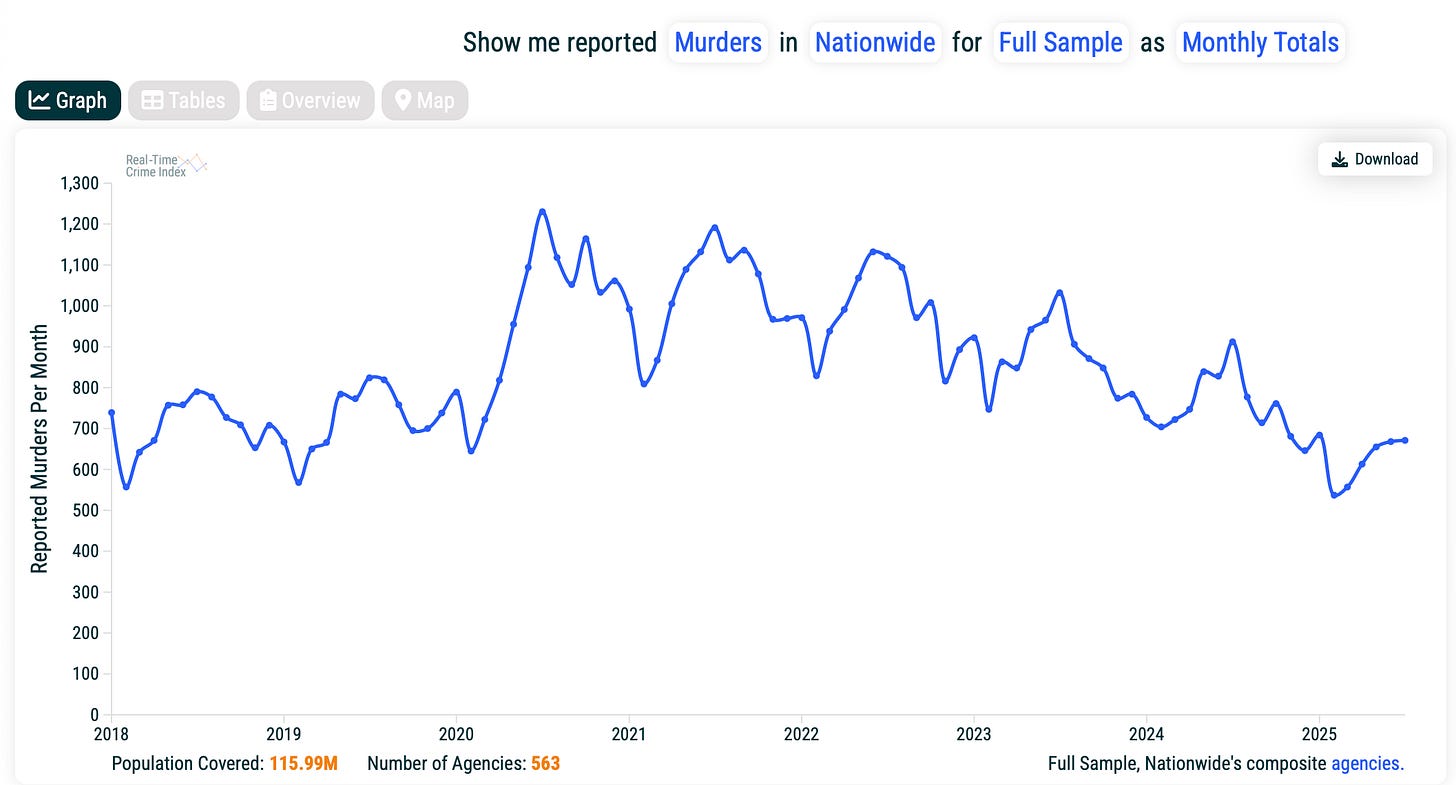
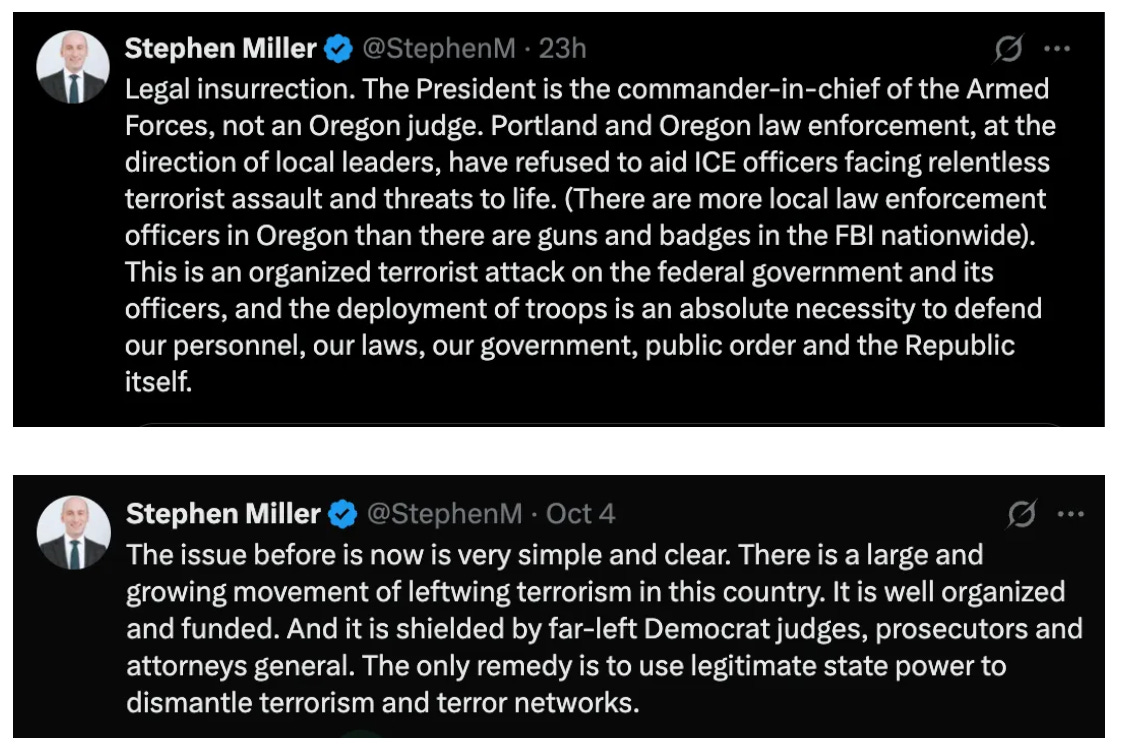
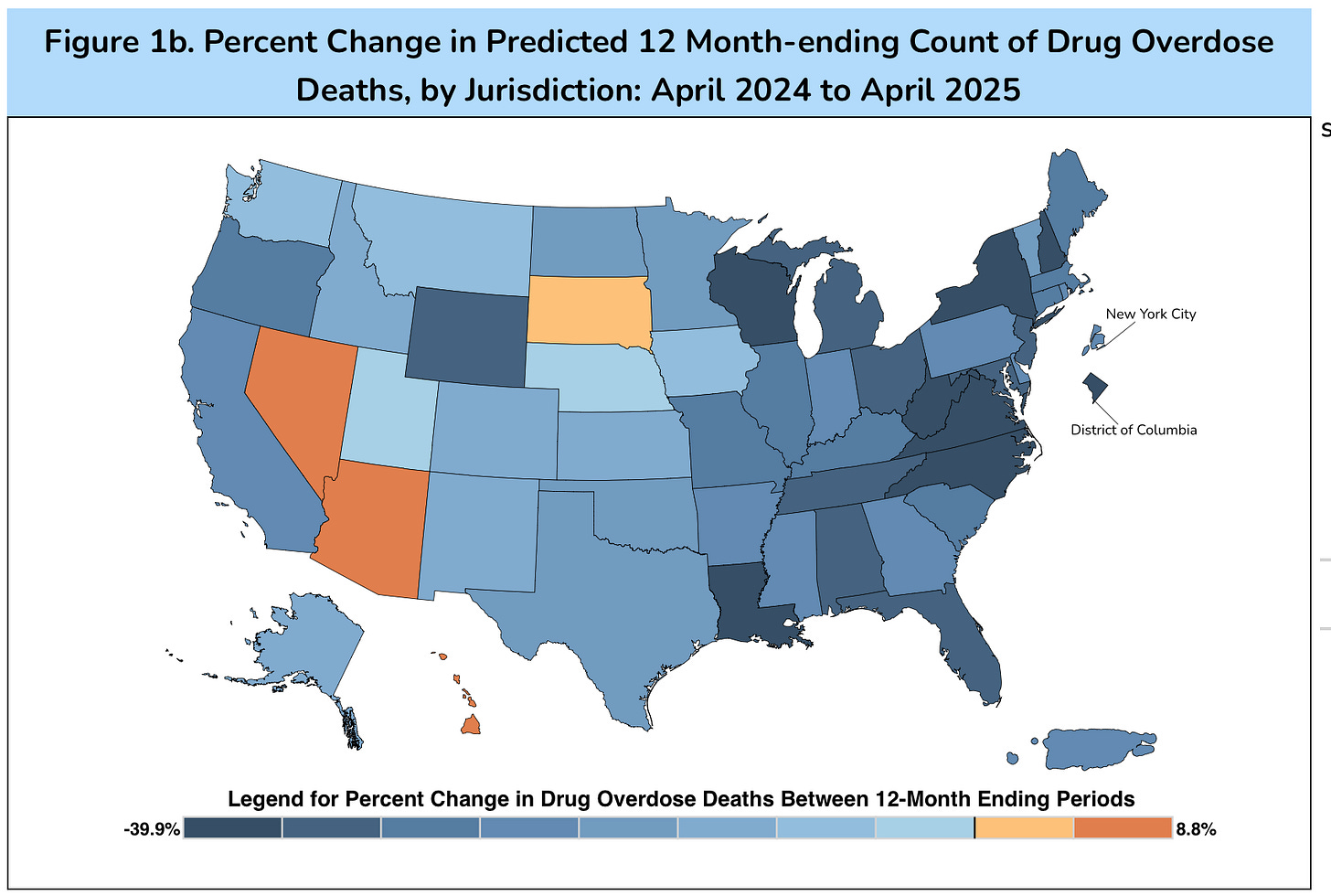
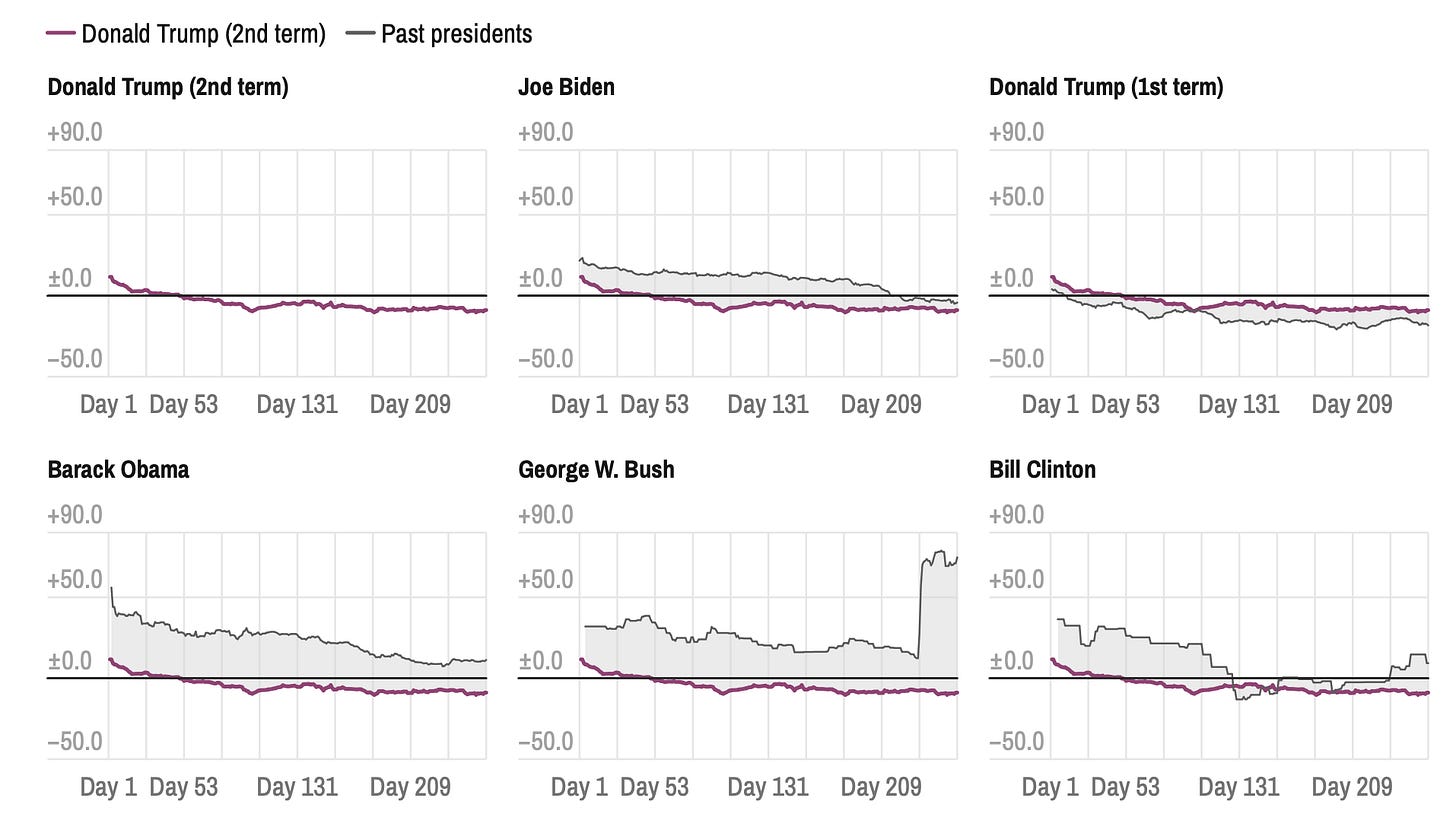
>I’m not entirely sure what game the administration is even playing with this. My best guess, though, is that Trump wants to throw his anti-Communist Cuban-American and Venezuelan-American supporters a bone.<
There's probably some of that. But these guys are really attracted to and fascinated by violence like moths to a flame, and they're obsessed with projecting macho toughness 24/7. Seriously. Hegseth won't shut up about how he's rescuing the warrior ethos from the clutches of woke leftists (in reality he's likely reducing the effectiveness of the military via both naked politicization, and by narrowing the Pentagon's potential talent pool). Anyway, Venezuela is low-hanging fruit in terms of being able to throw our weight around and produce news footage of US munitions blowing shit up and killing people. Same with troops on the streets. Same with changing DOD to Department of War (did you know the Nazis did that, too, in 1935?). Ditto their threats to conquer Greenland and Canada.
I just want to be able to do my job in peace. No economically illiterate tariffs that keep fucking with prices and item availability (the glut of summer-season shit we still have sitting around heading into fall, bought up in advance due to forward-looking planning on the non-walked-back rates...you don't wanna know). No pretextual deportations of our veteran truck drivers (sure is totally coincidental how pre-2025, they were 90% latino, and now are 100% Sikhs). No crankish crackdown on mRNA respiratory vaccines (the waves of sickness will continue until morale improves + god I'm sick of masks). No transforming the entire US economy into a leveraged bet on AI (my company 401k can't diversify away from that gamble).
It's just so damn tiring and none of us get paid enough to deal with this crap. Like, yeah, democracy's nice and all, I feel sad in some abstract sense for the suffering minorities, my pride as an American is in sorry shape. But at the end of the day, once one cuts through all the high-minded principles of heaven and earth in Horatio Kain's philosophy *sunglasses*, it's these quotidian concerns that motivate me most. Why anyone would want to throw away the comfort of normal ordinary times to LARP as a revolutionary (of one persuasion or another) is beyond me.